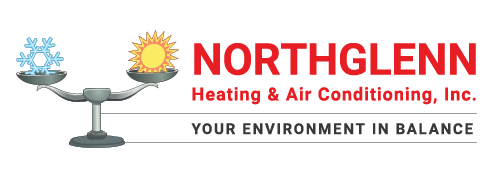Completing the search for your first home is exciting. You’re probably trying to keep track of numerous details to ensure you’re making the right choice. We believe that gaining insight into your future HVAC system is essential. The property’s HVAC system represents a significant investment and source of potential long-term costs, so being thorough should be a top priority for first-time homebuyers.
In this guide, we’ll share seven tips for learning everything you can about a home’s heating and cooling system. And if you want a deeper opinion from the experts, feel free to call Northglenn Heating & Air Conditioning. Our seasoned technicians can share details about your options with industry insights that are second to none.
1. What HVAC System Are You Working With?
Start by determining what specific HVAC system the home features. Furnaces tend to last longer compared to air conditioners, and relatively new types of HVAC equipment like heat pumps feature average life spans longer than ever. Knowing the make and specific model provides a clear understanding of how much routine maintenance it might need.
2. What Is the Current System’s Age?
It’s just as smart to learn how old the HVAC system is when you’re looking at a potential new home. For the most part, HVAC systems last about 10-12 years. Knowing when it was installed helps you anticipate future maintenance needs or when it might shut down for good. Older systems are at a higher risk of problems, so fiscal planning for a replacement unit could be necessary sooner than you thought.
3. What Does the Warranty Cover?
Check if the HVAC system is still under warranty. If it is, this can lighten the load for maintenance costs. HVAC warranties typically include parts and labor, but the details in each policy will vary. Make sure you go over any terms you don’t recognize to make sure you fully understand your coverage and any possible out-of-pocket costs.
4. Has the System Ever Been Professionally Serviced or Maintained?
Next, examine the maintenance history of the HVAC system, if such information is available. This kind of information can reveal if the repair needs are high or how much upkeep was provided. Inquire about key tasks such as changing the air filter, which means it enjoyed more regularly scheduled tune-ups.
5. Do You Know Its Energy Efficiency Ratings?
Finding a home that features an HVAC system with high energy efficiency means smaller utility bills and less of an impact on the environment. Look for the seasonal energy efficiency ratio (SEER) ratings for air conditioning and the annual fuel utilization efficiency (AFUE) for furnaces. Higher SEER ratings mean better cooling across the entire season, while strong AFUE ratings mean the fuel is more effectively burned for useable heat.
6. Have You Noticed Signs of Problems After Completing an Informal Inspection?
Even if you don’t have the know-how of an HVAC technician, it’s still a good idea to inspect the HVAC system on your own. Watch closely for any concerning items that weren’t mentioned by the seller or real estate agent. This might consist of odd sounds, unequal airflow and attempts at concealing any serious damage.
7. Have You Sought Out Expert Advice?
If you’re not quite sure about the current state of the HVAC system, it’s wise to get input from certified HVAC professionals. They can spot things you might not, including leaking coolant, bad electrical connections or damaged ductwork.
A Consultation with Northglenn Heating & Air Conditioning Simplifies Your Home-Buying Journey
Finding your first home is meant to be a joyful event, and Northglenn Heating & Air Conditioning can ensure yours is too. Connect with us at 303-452-4146. We can discuss how our HVAC services give you peace of mind, giving you what you need to step into your new home with confidence.
